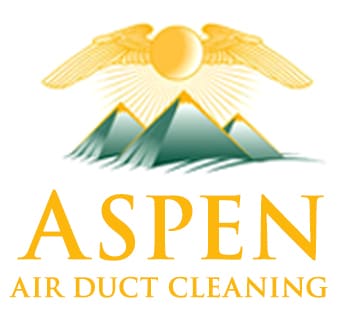HERS Index Rater 101: Your Gateway to Energy-Efficient Homes
In today’s world, where sustainability and energy efficiency are becoming increasingly vital, understanding the HERS Index Rater and what it means for your home can be highly beneficial. Aspen Air Duct Cleaning is HERS-rated and dedicated to helping you create a healthier and more efficient living environment. That's why we believe it's essential to shed light on the significance of the HERS Index Rater and how it impacts your family's well-being.

What Is the HERS Index Rater
HERS stands for Home Energy Rating System, and the HERS Index Rater is a nationally recognized system for inspecting and calculating a home's energy efficiency. This rating system evaluates various aspects of a home's energy performance, including insulation, windows, HVAC systems, and more. The lower the HERS Index score, the more energy-efficient the home is.
But why should you care about the HERS Index when considering a new home or assessing the energy efficiency of your current one?
Here's Why HERS® Homes Aren't Just Better but Also Better for You and Your Family
- Lower Utility Bills:
- Improved Comfort:
- Healthier Indoor Air Quality:
- Environmental Benefits:
- Increased Resale Value:
Homes with lower HERS Index scores typically have lower utility bills. By investing in an energy-efficient home, you can save money on monthly energy expenses, allowing you to allocate your resources elsewhere.
Energy-efficient homes are better at maintaining consistent temperatures throughout the year. With proper insulation and efficient HVAC systems, you can enjoy a more comfortable living environment without hot or cold spots.
A HERS Index Rater evaluates ventilation systems, ensuring proper airflow throughout the home. This helps in reducing indoor air pollutants, such as dust, allergens, and mold, thereby promoting better indoor air quality and healthier living conditions for your family.
Energy-efficient homes have a lower carbon footprint, as they consume less energy for heating, cooling, and electricity. By choosing a home with a lower HERS Index score, you're contributing to environmental sustainability and reducing greenhouse gas emissions.
Homes with high energy efficiency ratings often have higher resale values. Potential buyers are increasingly looking for energy-efficient features that can translate into long-term savings, making your home more attractive in the real estate market.

Frequently Asked Questions (FAQs) About HERS
- What is HERS?
- How is the HERS Index calculated?
- Why is the HERS Index important?
- What is a good HERS Index score?
- How can I improve my home's HERS Index score?
- What are the benefits of a low HERS Index score?
- Who performs HERS ratings?
- Is a HERS rating required for all homes?
- How long does a HERS rating take?
- Where can I find a certified HERS Rater?
HERS stands for Home Energy Rating System. It's a nationally recognized system for assessing and rating the energy efficiency of homes.
The HERS Index is calculated by a certified HERS Rater who evaluates various aspects of a home's energy performance, including insulation, windows, HVAC systems, and more. The lower the HERS Index score, the more energy-efficient the home is.
The HERS Index provides homeowners and buyers with valuable information about a home's energy efficiency. It helps them understand how much energy the home consumes and identifies areas for improvement to increase energy savings and comfort.
A good HERS Index score typically falls below 100. The lower the score, the more energy-efficient the home is compared to a standard new home. A HERS Index score of 100 represents the energy use of a standard new home built to code.
There are several ways to improve your home's HERS Index score, including upgrading insulation, installing energy-efficient windows and doors, sealing air leaks, and upgrading to high-efficiency HVAC systems and appliances.
A low HERS Index score means lower energy bills, improved comfort, healthier indoor air quality, reduced environmental impact, and potentially higher resale value for your home.
HERS ratings are conducted by certified HERS Raters who have undergone specialized training and are accredited by organizations such as RESNET (Residential Energy Services Network).
While a HERS rating is not mandatory for all homes, it is often required for new construction and may be requested by homeowners looking to assess their home's energy efficiency for various reasons, such as energy savings, comfort, or resale value.
The duration of a HERS rating depends on the size and complexity of the home. On average, a HERS rating typically takes a few hours to complete.
You can find certified HERS Raters through RESNET's directory or by contacting local energy efficiency organizations or contractors who offer HERS rating services.
At Aspen Air Duct Cleaning, we understand the importance of maintaining a healthy and energy-efficient home. That's why we offer comprehensive air duct cleaning services to improve indoor air quality and ensure your HVAC systems operate efficiently.
Best Home Energy Rating in Boston, MA
Take the first step towards a healthier and more energy-efficient home today. Contact Aspen Air Duct Cleaning to schedule a consultation with our experts. Let us help you create a living space that not only benefits your family's well-being but also contributes to a greener, more sustainable future.
Don't wait any longer. Invest in your family's health and comfort with Aspen Air Duct Cleaning. Together, we can make a difference—one clean duct at a time.
